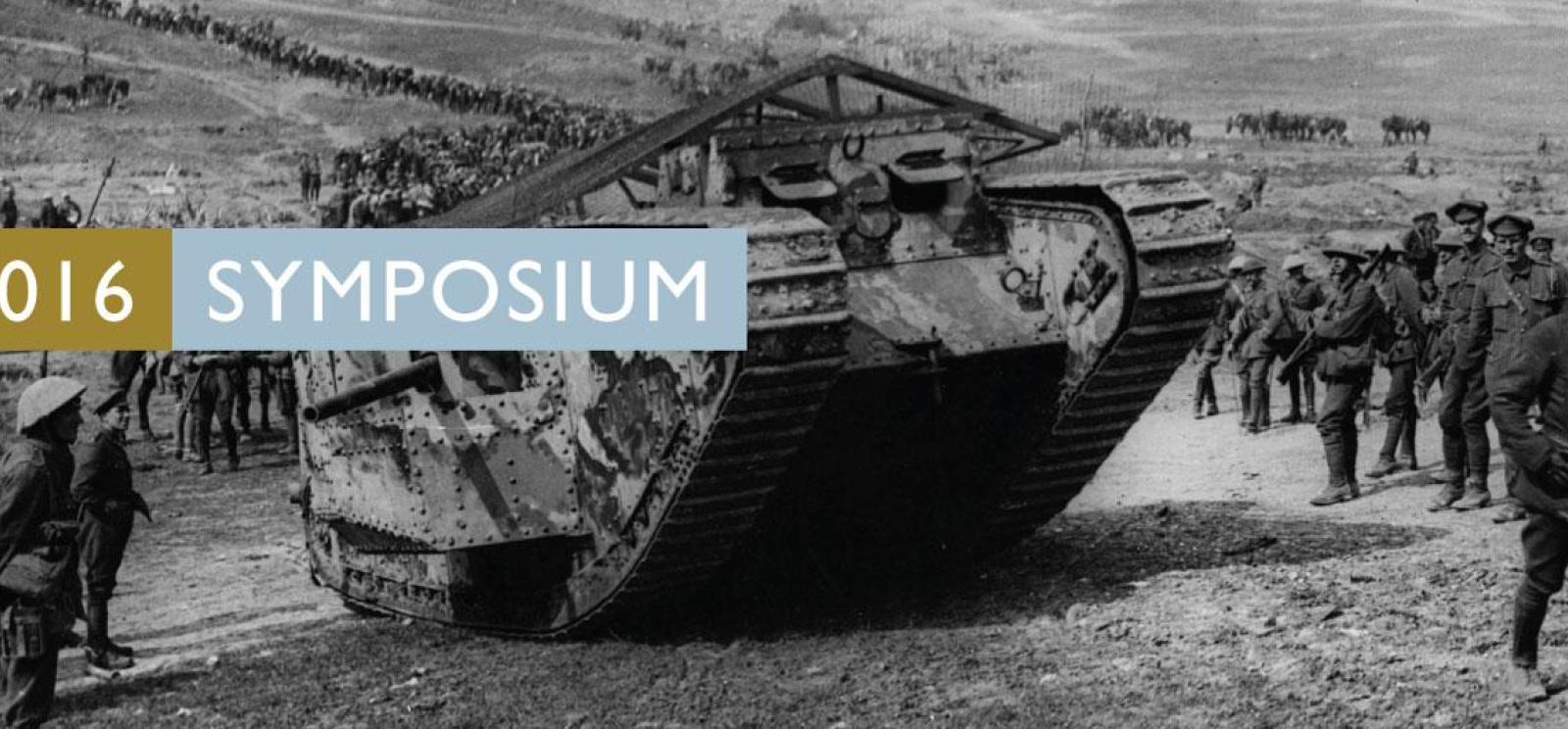Two years into the World War, both Allied and Central Powers suffered devastating military and civilian losses. Confronting the reality of total war and grimly determined to see it through, 1916 was the year of great battles. Nations no longer sought to prevail by brilliant strategic assaults, resorting to bloody battles of attrition on the Western Front at Verdun and the Somme and on the Eastern Front in the Brusilov Offensive. Great Britain and France redrew the map of the Middle East despite suffering repeated defeats there. In the North Sea, for the first and only time in the war, the British and German battle fleets clashed. Throughout the year the warring nations kept a wary eye on the United States, where pacifism competed with preparedness and President Wilson won another term because “he kept us out of war.”
Explore the pivotal year of 1916, where global socio-political tensions created by World War I continued escalation and irrevocably changed the economic, military, and cultural landscape of the world.
Watch the 2016 Symposium presentations on YouTube
Presenters and Abstracts
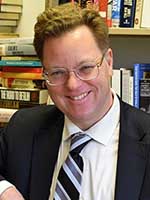
Vejas G. Liulevicius
BUILDING CRISIS IN 1916 BEHIND THE EASTERN FRONT
The year 1916 was marked by accelerating contradictions in German-occupied Eastern Europe. The military colony along the Baltic, called Ober Ost, rushed to realize an authoritarian model of modernity and forced development, outlined by the technocrat of total war, General Erich Ludendorff. Yet the occupation regime encountered growing ethnic tension and political demands. German attempts to coopt Polish nationalism with the promise of a new Kingdom of Poland failed. Under the pressure of total war's demands, economic exploitation increased and hit the occupied territories with severity. Behind the fighting front, 1916 stored up potential for the clash of radically different visions of the future in Eastern Europe.
Biography
Vejas Gabriel Liulevicius is the Director of the Center for the Study of War and Society and a professor of History at the University of Tennessee and Lindsay Young Professor in the College of Arts and Sciences. He specializes in modern European history, with a focus on modern Germany and diplomatic history. A native of Chicago, Illinois, he earned his doctorate from the University of Pennsylvania and has taught at UT since 1995. He is the author of War Land on the Eastern Front: Culture, National Identity and German Occupation in World War I (Cambridge University Press, 2000), which also appeared in German translation, and The German Myth of the East: 1800 to the Present (Oxford University Press, 2009). He has published articles which have also appeared in translation (in Italian, French, and German, including in Germany’s main news magazine, Der Spiegel). He is vice-president of the Association for the Study of Nationalities and past president of the Association for the Advancement of Baltic Studies. He has been awarded a National Endowment for the Humanities fellowship and twice won UT’s teaching award.He also has produced seven taped lecture courses with The Great Courses company, available on CD/DVD/download, on topics including the First World War, dictatorships, diplomacy, Eastern Europe, espionage, exploration, and turning points of modern history.
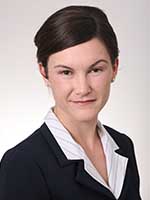
Annessa Stagner
CONFRONTING THE SHELL SHOCK OF WAR
Although medical personnel were already well aware of mental and neurological injuries commonly referred to as "shell shock," 1916 marked a turning point in which nations and militaries were forced to confront the destruction the War was causing on human minds. Indeed, by 1916, many perceived the "shell shock" of the War to be a casualty epidemic. This talk will examine the ways in which individuals came to understand the magnitude of the War's mental toll on both soldiers and nations and some of the most significant ways they attempted to mitigate the damage.
Biography
Annessa Stagner has been the Dean of Academic Services at Lamar Community College since 2015 after working as a visiting assistant professor and pedagogical fellow for the University of California. Dr. Stagner attended the University of California Irvine (UCI) where she was awarded her PhD in History with distinction. During this time she completed a wealth of research on the history of psychological war trauma, now commonly referred to as PTSD. Her academic work received grants and has been published in several forms. She has shared her research on "shell shock" of the World War I era in two well-known venues including a TEDx Talk and CSPAN2, the History News Network.She has served on the Governing Council for the Society of Historians of US Foreign Relations, and presented at the annual meetings of the Society of Historians of US Foreign Relations, the American Historical Association, and the Society for Military History.
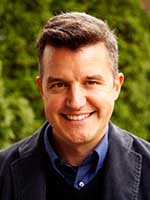
Robert Nelson
ESCAPE FROM TOTAL WAR: BRITISH, FRENCH AND GERMAN SOLDIER NEWSPAPERS AND THEIR EFFECT ON MORALE
To memoirs and soldiers’ letters, the new military historian must add soldier newspapers as a rich and useful source for understanding the fears and hopes of the troops of all ranks in the First World War. By analyzing the production and creation of these newspapers for the British, French and German armies, and indicating both the unique national traits of each nation’s journals as well as the universal stories found across the three armies’ newspapers, one can see how soldiers sought to ‘escape’ while on rest behind the lines, and simultaneously better understand why they continued to fight.
Biography
Robert Nelson is the Department Head and Associate Professor in History at the University of Windsor, where he specializes in Modern European cultural history, German history, First World War and colonialism. He is the author of the book German Soldier Newspapers of the First World War (Cambridge, 2011) and the editor of Germans, Poland and Colonial Expansion to the East: 1850 Through the Present (Palgrave, 2009). His new area of research, developed this last year while a Visiting Fulbright Scholar at the City University of New York, Graduate Center, investigates the development of a German 'colonial gaze' upon Eastern Europe, which began in the 1880s, and radicalized during the First World War.Dr. Nelson’s areas of interest thus include: the social and cultural history of war and occupation, as well as both overseas and 'inner' colonialism.
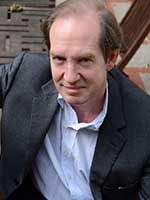
Paul Jankowski
THE MYTHS OF VERDUN
100 years after the battle of Verdun, so much has been told, re-told, written, sung, and filmed that sorting out the facts from the myths and the realities from the legends has become the essential to historical understanding. Over time, posterity has suffused the origins, experience, and stakes of the battle with multiple meanings. This lecture will consider the myths as well as the realities of the Battle of Verdun.
Biography
Paul Jankowski is the Raymond Ginger Professor of History at Brandeis University, where he focuses on modern European and French history, including the history of modern wars and warfare. In 2014 he won the World War I Historical Association Tomlinson Book Award for Verdun: The Longest Battle of the Great War and has since become a highly sought-after source for expert commentary and counsel regarding the meaning and impact of the Battle of Verdun. Jankowski has given talks at the French Embassy cultural service in New York, the French Consulate in Boston, the Public Library in Arlington, Virginia, and the World War I Historical Association in Norfolk, Virginia.Jankowski is the recipient of several awards including the Camargo Foundation Fellowship to France from 1995-96 and a Research Fellowship at the Centre National Research Fellowship, Centre National de la Recherche Scientifique in 1992.
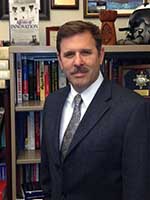
John Kuehn
THE GREAT WAR AT SEA—1916, THE YEAR OF DECISION?
This talk looks at the war at sea during the Great War during perhaps its pivotal year, 1916. It will discuss the dynamics of the Allied blockade, the ongoing escalation of German actions leading to the Battle of Jutland, and the decision by the Germans to turn again to unrestricted submarine warfare as a means to end the war in late 1916. These actions occurred against the backdrop of horrific campaigns on land—and the mounting sense of frustration by naval officers with the war they had, not the one they wanted.
Biography
John T. Kuehn, Ph.D. is currently Professor of Military History at the US Army Command and General Staff College and has served on the faculty there since July 2000, retiring from the Navy 2004. He earned a Ph.D. in History from Kansas State University in 2007. He is the author of Agents of Innovation (2008) and co-authored Eyewitness Pacific Theater (2008) with D.M. Giangreco, A Military History of Japan (2014) as well as numerous articles and editorials. He was awarded a Moncado Prize from the Society for Military History in 2010. His latest book is Napoleonic Warfare: The Operational Art of the Great Campaigns.(2015) His next book, entitled America’s First General Staff about the General Board of the US Navy will be published by Naval Institute Press next year.
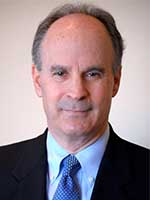
Lee Pollock
WINSTON AT THE FRONT: FROM PARLIAMENT TO PLUGSTREET, 1916
When Great Britain entered the First World War in August 1914, Winston Churchill stood at the apex of power as First Lord of the Admiralty, civilian head of the world’s greatest navy and a key strategist in the nation’s military planning. Barely a year later, stripped of office, condemned for and haunted by the failure of the Dardanelles campaign, he crossed the English Channel to serve in an army battalion on active duty at the front.
Nineteen sixteen was a pivotal year in the life of the man who, in a later world war, would lead Britain to victory against an even more menacing German opponent. It was a time of excitement and adventure, discouragement and redemption and a renewed self-confidence in the role he would play as he continued “walking with destiny” the remainder of his life.
Biography
Lee Pollock is Executive Director and a Trustee of The International Churchill Society, a history member organization with offices in Chicago, Washington and London. He assumed his current position in October 2010, after having served as a Member of the Society’s Board of Trustees since 2009. A native of Montreal, Canada, Lee graduated from McGill University in 1971 with Honors in Political Science and Economics and subsequently received a master’s degree from the University of Chicago. He has spoken about the life and times of Winston Churchill to audiences throughout the United States, Canada and Britain. Among his subjects have been: Winston Churchill: Secrets of Leadership; Franklin and Winston: The Friendship that Saved the World; At Churchill’s Table: Dining and Diplomacy with History’s Greatest Leaders;Churchill and the Jews: Zionism, Holocaust and the Making of the Middle East; and Churchill and the Civil War. Lee lives in Chicago with his wife Jill Gosden. They have two children.
Michael Kazin
THE PEACE COALITION THAT ALMOST KEPT THE U.S. FROM GOING TO WAR
In his presentation, The Peace Coalition that Almost Kept the U.S. from Going to War, Michael Kazin explores how various American groups zealously challenged the United States’ entry into the war. Kazin examines how President Woodrow Wilson, who promised to “keep us out of the war,” shifted the United States’ isolationist policies and ultimately declared the country’s entry into the Great War in 1917. Kazin places a special emphasis on the lesser-known individuals and groups that struggled for peace, and examines how these groups’ efforts affected Wilson’s policies before, during, and after the war. Kazin argues that although unsuccessful in their attempts to keep the United States from going to war, the various peace coalitions’ goals and values continue to be relevant today.
Biography
Michael Kazin is a Professor in the Department of History at Georgetown University where he is an expert in U.S. politics and social movements of the 19th and 20th centuries. His most recent book is American Dreamers: How the Left Changed a Nation (Knopf, 2011), which was named a Best Book of 2011 by The New Republic, Newsweek/Daily Beast, and The Progressive. He is editor of Dissent, a leading magazine of the American left since 1954. His next book, War against War: The American Fight for Peace, 1914-1918, will be published in January, 2017, by Simon and Schuster.
Prior to his position at Georgetown, Kazin served as Assistant Professor to Professor of History at the American University. In 1996, he served as John Adams Chair in American Studies at Utrecht University in the Netherlands. He has also lectured in Japan, Germany, Italy, France, Great Britain, and Russia as well as throughout the United States.Kazin is the recipient of many academic honors including: Advanced Research Collaborative, Graduate Center- City University of New York, 2013-14, a National Endowment for the Humanities Fellowship in 2009 and a Guggenheim Fellowship in 2004.
John Curatola
1916: THE AIR WAR
Starting with the 'Fokker Scourge' in late 1915, the air battles over Verdun and the Somme as well as the Zeppelin raids over England in 1916 led to a technological and doctrinal race for air superiority. These events had both a physical and psychological toll and lead to the development of the modern concept of 'total war.'
Biography
John Curatola is an associate professor of History at the U.S. Army Command and General Staff College at Fort Leavenworth, Kansas. Prior to this position he was an active duty Marine Corps officer and retired in 2009 as a Lieutenant Colonel after 22 years of service.He received his doctorate from the University of Kansas in 2008. His work has been published in number of books and national periodicals.
Volker Berghahn
BIG BUSINESS AND THE QUESTION OF AMERICAN NEUTRALITY, 1914-1916/17
Combining the usage of archival documents, social and economic history, Volker Berghahn will unpack the complex and often misunderstood economic and political relationship between the United States’ and Great Britain’s business communities between 1914 and 1916 and the changes in American business opinion that persuaded the nation’s entry into the Great War in April 1917. Berghahn will also highlight Germany’s role as another major trading partner of the United States and underscore the many affinities these two countries shared despite American neutrality until the US entered the war on the Allied side. This presentation argues for a more nuanced look and understanding of the rapidly changing American business decisions that would irrevocably change the course of United States’ history.
Biography
Volker Berghahn is the Seth Low Professor of History at Columbia University and specializes in modern German history and European-American relations. He received his M.A. from the University of North Carolina, Chapel Hill (1961) and his Ph.D. from the University of London (1964). He taught in England and Germany before coming to Brown University in 1988 and to Columbia ten years later. His publications include: America and the Intellectual Cold Wars in Europe (2001); Quest for Economic Empire (ed., 1996); Imperial Germany (1995); The Americanization of West German Industry, 1945-1973 (1986); Modern Germany (1982); Der Tirpitz-Plan (1971); Europe in the Era of Two World Wars (2006);and most recently Industriegesellschaft und Kulturtransfer, Goettingen (2010). Dr. Berghahn has received many accolades including his fellowship at the Royal Historical Society in England and an Order of Merit, First Class at the Federal Republic of Germany.
Stephen Bridges
THE WORLD TODAY: ONE HUNDRED YEARS SINCE THE GREAT WAR
British Consul General Stephen Bridges will discuss several of the major issues, including the U.K. exiting the European Union, the Middle East and ISIS, the Syrian refugee crisis, and immigration. Consul General Bridges provides an important perspective gained as a result of his years of diplomatic experience.
Biography
Stephen Bridges accepted his post as Consul General in Chicago, Illinois in August 2013. Formerly, he was in London leading on Human Resources and workforce issues for the Foreign & Commonwealth Office since 2011. From 2007 to 2011 he was in the private sector working with renewable energy and natural resources companies. In his 30-year career as a Diplomat, Stephen has served the Government of the United Kingdom in both Africa and Asia, to include posts as British Ambassador to Cambodia (2001 to 2004) and Acting and Deputy High Commissioner, Consul General, and Trade & Investment Director to Bangladesh (2005 to 2007). Stephen has extensive private sector experience and holds an International Relations degree from the University of London and an MA in Asian Pacific Studies from the University of Leeds.The Consul General is joined in Chicago by his wife, Kim, and their dog, Montague. He is a keen supporter of the Plymouth Argyle Football Club.
Robert Dalessandro
Centennial Commemoration and the Modern Importance of WWI
Nearly every aspect of modern life has been shaped by World War I and its aftermath. Robert J. Dalessandro, in his presentation Centennial Commemoration and the Modern Importance of WWI, addresses this subject as well as the enduring significance of the Great War around the world including lessons from the war that should not be ignored.
Biography
Colonel (retired) Robert Dalessandro is the Deputy Secretary of the American Battle Monuments Commission (ABMC) and Chairman of the U.S. World War One Centennial Commission. Previously the Executive Director/Chief of Military History at the U.S. Army Center of Military History, he has over 30 years of experience in the Department of Defense serving in a variety of command and staff positions. Rob was commissioned in the U.S. Army after graduating from the Virginia Military Institute with a degree in history. He holds a master's degree in Military Arts and Science in history from the U.S. Army Command and General Staff College; a master's degree in Strategic Studies from the U.S. Army War College; and a graduate certificate in museum collections management and care from George Washington University. Rob is editor of the Army Officer's Guide, and coauthor of Organization and Insignia of the American Expeditionary Force, 1917-1923; Willing Patriots: Men of Color in the First World War; American Lions: The 332nd Infantry Regiment in Italy in World War One, and Over There: America in the Great War. Considered one of the Army's foremost experts on battlefield interpretation, Rob is widely published on the lifeways and material culture of the American Soldier.
Schedule
Friday, Nov. 4
10 a.m. - 5 p.m. Museum open
7:30 - 8 a.m. Shuttle service from the Marriott Hotel to the Museum
8 - 8:30 a.m. Check-in for attendees at the Museum
8:30 - 8:45 a.m. Welcome: Matthew Naylor
8:45 - 9:45 a.m. Session: Paul Jankowski
9:45 - 10 a.m. Break
10 - 11 a.m. Session: John Curatola
11 a.m. - Noon Session: Annessa Stagner
Noon - 1:30 p.m. Lunch at the Museum
1:30 - 2:30 p.m. Session: Vejas Liulevicius
2:30 - 3:30 p.m. Session: John Kuehn
3:30 - 3:45 p.m. Break
3:45 - 4:45 p.m. Session: Michael Kazin
5 - 5:30 p.m. Shuttle service from the Museum to the Marriott Hotel
6:30 - 7:30 p.m. Cocktail hour at the Marriott Hotel
7:30 - 9:30 p.m. Dinner/Session: Robert Dalessandro, British Consul General Stephen Bridges
Saturday, Nov. 5
10 a.m. - 5 p.m. Museum open
7:30 - 8 a.m. Shuttle service from the Marriott Hotel to the Museum
8:30 - 9:30 a.m. Session: Robert Nelson
9:30 - 9:45 a.m. Break
9:45 - 10:45 a.m. Session: Lee Pollock
10:45 - 11:45 a.m. Session: Volker Berghahn
11:45 - 1 p.m. Lunch at the Museum
11:45 - 1 p.m. State Commission Luncheon (R.A. Long Education Center)
12:30 - 1:30 p.m. Shuttle service from the Museum to the hotel
1:30 - 3 p.m. TBD: Commission Workshops
3:30 - 4 p.m. Shuttle service from the Museum to the Marriott Hotel
WHO SHOULD ATTEND?
All who have a general to professional interest in the periods prior to, during and after World War I should attend this symposium. It especially applies to historians and members of organizations that study these periods and to those who are engaged in planning projects and programs for the war’s centennial between 2014-19.
Symposium Fee
The registration for the symposium is:
$195 early bird pricing (Deadline October 1, 2016)
$245 per person (After October 1, 2016)
The registration provides attendees:
- Admittance to the presentation
- Lunch at the Museum and Memorial on Friday, November 4
- Dinner with two complimentary drinks on Friday, November 4
- Lunch at the Museum and Memorial on Saturday, November 5
- Admittance to the Museum and Memorial's exhibits including They Shall Not Pass, 1916
Refund policy
The Museum and Memorial will honor a 50-percent refund on registration fees until October 1. After October 1, no refunds will be granted. Attendees may contact Mark Gunter at 816.888.8103 to request a refund.
OVERVIEW SCHEDULE
Thursday, November 3: Check-in available at the Museum (3 - 5 p.m.)
and the Marriott (6 - 8 p.m.)
Friday, November 4: 8:30 a.m. - 5 p.m.; 6:30 p.m. Cocktail hour, dinner and presentation featuring Stephen Bridges (at the Marriott)*
Saturday, November 5: 8:30 a.m. - 1 p.m.
* Non-Symposium attendees may purchase tickets to attend the Friday evening dinner/presentation.
HOTEL ROOMS
A block of rooms is set aside at the Kansas City Marriott Country Club Plaza. Please contact the hotel for availability, further rate information, and to make your reservation. To receive the special rate of $140 a night, reservations must be completed by Oct. 19.
SUPPORTERS
The Symposium is presented by the National WWI Museum and Memorial and the U.S. World War One Centennial Commission in partnership with The Churchill Centre and the Command and General Staff College Foundation, Inc. and sponsored by the Charles Bacon Fund. Special thanks to our presenting sponsors, Bill and Laura Frick.
For information or questions, please email education@theworldwar.org.
